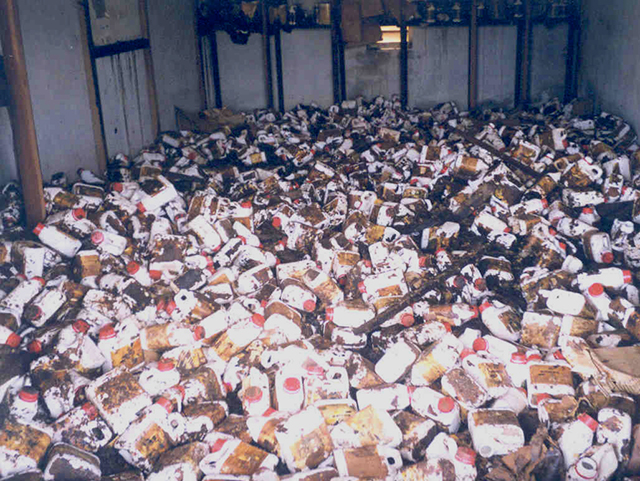
Every year, thousands of kilograms of pesticide products are imported into the Pacific islands region for use in agriculture and pest control.
Pesticides require careful handling as many pose an unacceptable risk to human health, animal health or the environment. In fact, according to the Stockholm Convention on Persistent Organic Pollutants (POPs), nine of the twelve most dangerous and persistent chemicals on the planet are types of pesticides.
One of the key priorities in reducing the risks of pesticides to human and environmental health in the Pacific islands is the effective management of used pesticide containers. Even when empty, pesticide containers are a form of hazardous waste and pose a significant threat to the health of Pacific people and to our fragile ecosystem.
An upcoming initiative, implemented by the Pacific POPs Release Reduction Project, promises to tackle this issue by establishing best practice management guidelines for used pesticide containers and assisting Pacific island countries to implement them.

Ms Lusiana Ralogaivau, SPREP's GEF uPOPs Project Coordinator, explains that the prioritised interventions in this area came about through direct feedback from the 14 countries participating in the project:
"Discussions with country representatives have indicated that the inappropriate management, storage and disposal of empty pesticide containers has been a major issue in the past, and will continue to be so into the future. This view is backed up by country reporting undertaken for the Stockholm Convention which clearly shows that empty pesticide containers are a significant hazardous waste management problem for most islands in the Pacific region."
In the region currently, there is very little in the way of used pesticide container take back or recovery, and recycling programs of any type are either very limited or non-existent. As a consequence, used pesticide containers are often burned or buried on farms and small holdings. Worse still, farmers often use empty pesticide containers for household purposes such as food and water storage.
These practices can be very harmful to both human health and the environment. When not properly cleaned, used pesticide containers often contain significant levels of pesticide residues. The open burning of used pesticide containers can generate dangerous dioxins and when buried, the harmful chemical residue can contaminate the surrounding area.
Dr Keneti Faulalo, Consultant for the Food and Agriculture Organization (FAO), explains that best-practice in used pesticide container management is crucial to reducing risks to human and environmental health, as well as reducing the release of POPs, particularly those that are produced unintentionally:
"Activities planned for the next four months will include baseline surveys in 14 Pacific Island countries to obtain estimates of annual pesticide container importation rates in terms of types and quantities imported. This will be followed by a feasibility study and cost benefit analysis at three pilot sites in Fiji, Samoa, and Tonga to determine the most effective used pesticide container decontamination and collection strategies."
A further outcome from the initiative will involve the strengthening of pesticide legislation and policies to support enforcement and implementation of best practice pesticide container management in the region.
The Pacific POPs Release Reduction Project, funded through the Global Environment Facility - Pacific Alliance for Sustainability (GEF-PAS), aims to reduce Persistent Organic Pollutants (POPs) in the Pacific region through the improved management of solid and hazardous waste.
The project is co-funded by Agence Française de Développement (AFD). It is executed by the Secretariat of the Pacific Regional Environment Programme (SPREP) and implemented by the United Nations Environment Programme (UNEP) and the Food and Agriculture Organization (FAO). For more information, please visit www.sprep.org/stopthepops